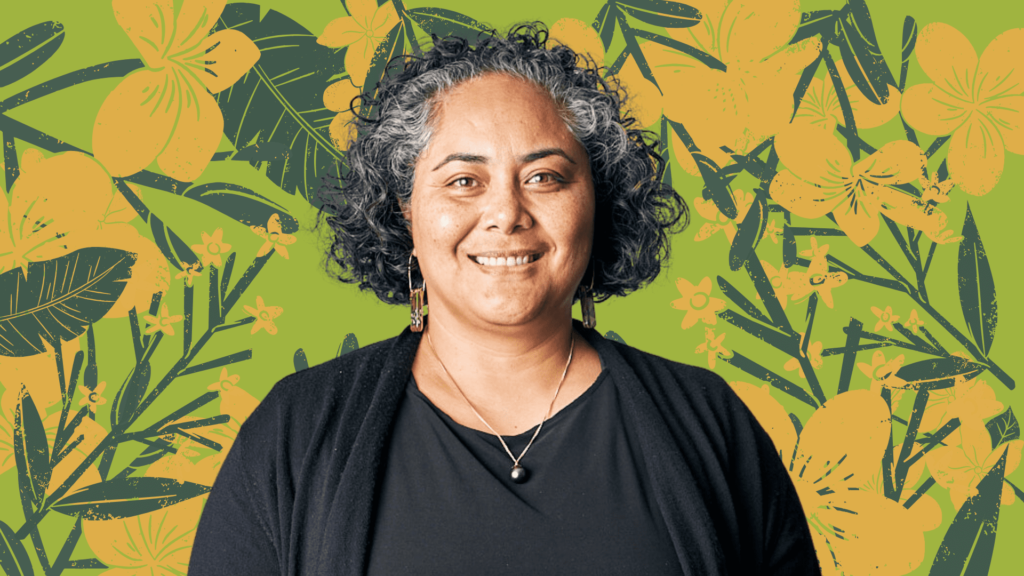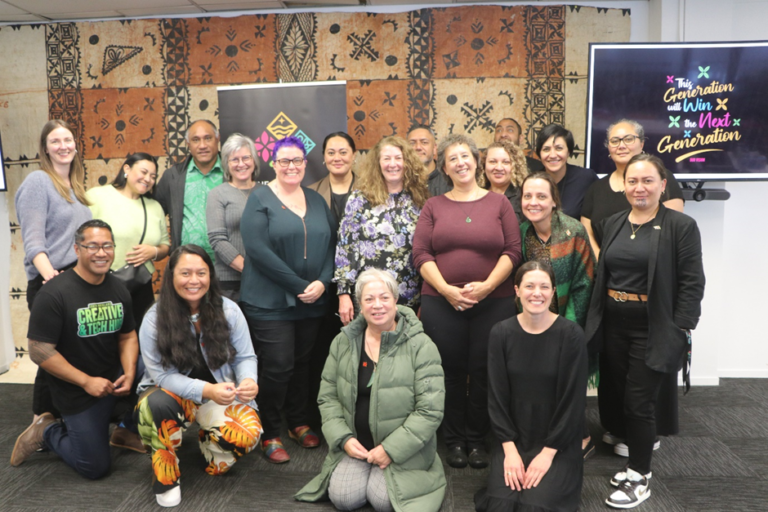
Proud Tongan and mother of four, Si’ata Tavite joined Healthy Families (The Cause Collective) in November 2021 as People and Practice Lead and since then has been leading the approach to how we practice systems change and social innovation. A former academic, she is an intelligent, authentic and empathetic leader, and she shares with us her inspirations for driving community change and the exciting work we are undertaking in South Auckland as well as across the country at Healthy Families New Zealand.
Malo e lelei Siata! Tell us about your role and what you did prior to joining Healthy Families South Auckland (The Cause Collective)
My role here at Healthy Families South Auckland is People and Practice Lead. This involves championing the Healthy Families NZ approach and ensuring that our team and how we do things is consistent with that approach.
Prior to joining HFSA I was in academia for 13 years at Massey University teaching accounting courses as well as supporting the research of my colleagues. In my last few years at Massey I was appointed as Associate Director Pacific at the Massey University Business School and that job largely involved shifting conditions within our college of business.
Sounds like a role that involves systems change?
Yeah it was! I didn’t call it that at the time, we didn’t have the Waters of Systems Change as a reference point like we do as part of our practice for Healthy Families New Zealand. My former role was focused on trying to achieve parity in Pasifika student outcomes when compared to non-Pasifika students at the business school. That involved trying to shift fixed or locked in ways of thinking and doing things within the university structure. The reality was that there was some flexibility, and it didn’t have to be so rigid. For example, the policies and practices in place for things like assignment submissions (was fixed) when it didn’t have to be, there could be some leeway to accommodate for the needs of different students.
What appealed to you about the People and Practice Lead role?
I came to understand that whilst we could do things within the university to cater to student needs or wellbeing. If we wanted to make a real impact, it had to start in the homes and communities where students live. My brother, Fole (Daleki) Finau, actually sent me the role of People and Practice Lead because I was looking for something else. This appealed to me because it’s the sort of thing that my parents were striving for in their own work.
Would you say your parents are your inspiration?
Most definitely! My parents have been the strongest influence in my life, my mother Eseta Finau and late-father Dr Sitaleki ‘Ata’ata Finau were both medical professionals. A lot of their drivers were ensuring that Tongan and Pasifika people could access a quality health system in Aotearoa and Tonga. When they finished their respective medical training they always wanted to lead or take part in community initiatives and they did – from smaller projects, such as accessing funding to get lamps for the local villagers of Masilamea to help with their fishing to being part of the group that set up the Tongan Health Society in Tāmaki Makaurau, the vision of the late Dr Leopino Foliaki.
That’s awesome – thanks for sharing that. What are the main challenges in your mahi?
One of the challenges is systems change. I’ve come to understand that it doesn’t have to be one big systemic change that will shift the entire system (whether it be alcohol harm, movement and sport, early years etc), it can be multiple small shifts of the six conditions (policy, practice, resource flow, relationships, power dynamics and mental modes) over time that will ultimately get the ‘big shift’ that we need.
For HFSA that means being able to shift the system conditions to reduce chronic disease in the places and spaces where people live, learn, work and play in South Auckland. This is what makes systems change so hard as well, because it doesn’t happen straight away nor is it clearly visible to those that aren’t in the work. Rather, you have to understand how all these parts are interconnected from grassroots to government that will affect the desired outcomes we want in our communities.
What’s exciting about the mahi at Healthy Families South Auckland (The Cause Collective)?
The potential for impact is great! Because it’s looking at shifting conditions from the grassroots, at the community level. It’s community driven in that we are listening to their voices and hearing where the current system doesn’t work for them. This also means that our work has the ability to adapt in response to what is happening within our communities.
Some of the most exciting things are just getting to talk to groups that are not usually given the voice, such as our young people out at Mangopare, Clendon Park. The potential in those young people that have been, more or less, written off by the system is endless. They are intelligent, funny, strong and engaging. They’re hungry for more for themselves and their community, all they need is connection with the right people. That connection is most impactful when it is with people who take the time to listen to what they have been through and are open to new ways of approaching things.
Any last words?
We’ve seen for decades now how Pasifika and Māori in South Auckland (and across the country) are well represented in poor health, education and crime statistics – all of that is connected. In order for people to live longer healthier lives we need the system needs to recognise how the various aspects of a person’s life interact. Healthy Families takes a holistic approach in that we look at the how/where people move, supports that are available in the early years of life, how connected we are to community, the types of foods we have access to, what our neighbourhoods look like. All of those things ultimately influence our health.

Si’ata, second from right (purple and blue scarf), with team members from Health Families South Auckland (The Cause Collective) and The Southern Initiative (TSI).